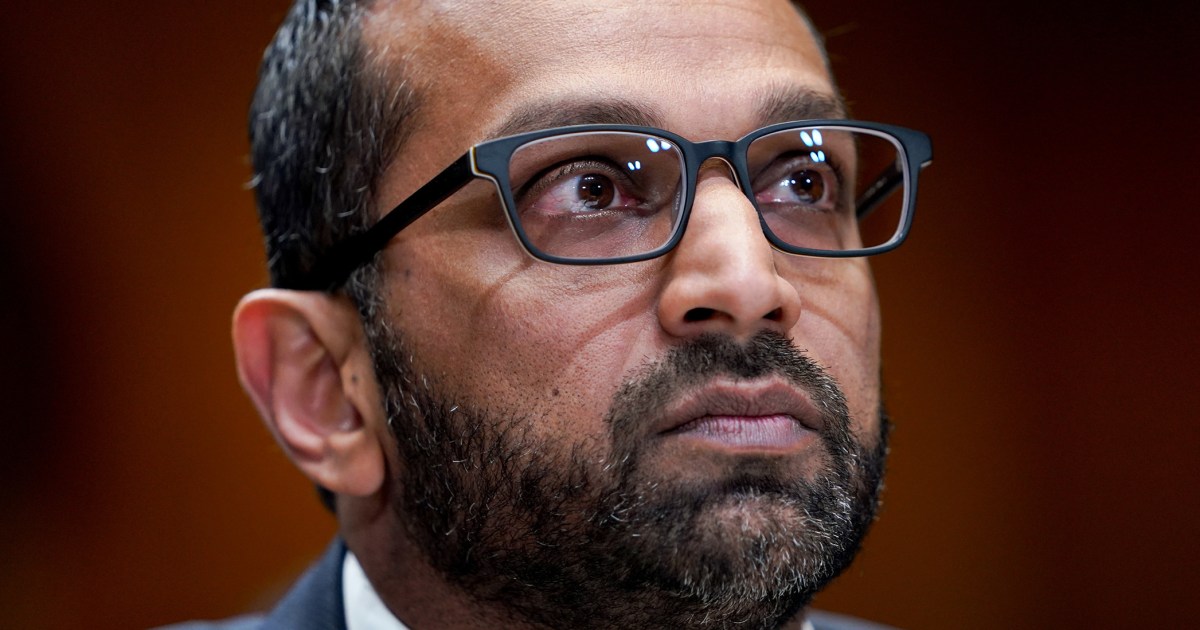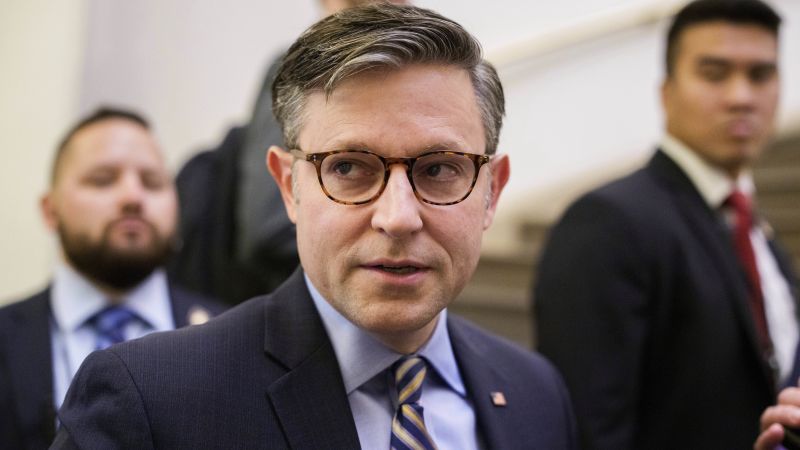Arizona Grijalva Swearing-In Dispute: Lawsuit Tests National Politics

Introduction
A recent lawsuit filed by Arizona Attorney General Kris Mayes has brought national attention to the ongoing dispute over the swearing-in of newly elected Representative Adelita Grijalva. The lawsuit targets Speaker Mike Johnson's refusal to seat Grijalva, despite her winning a special election last month. This move has sparked a heated debate about voter disenfranchisement and the democratic process.
Key Details
The lawsuit underscores the significant implications of Grijalva's potential swearing-in, particularly as she would be the deciding vote on several key issues, including a discharge petition related to the Jeffrey Epstein case. Speaker Johnson has cited "customary practice" and the government shutdown as reasons for delaying the swearing-in, but Arizona officials argue that this constitutes an unlawful obstruction of democracy.
Impact
The lawsuit highlights the tension between state and federal authorities, with Arizona asserting its right to representation in Congress. The outcome will have far-reaching implications for the state's political voice and the broader balance of power in Washington.
About the People Mentioned
Mike Johnson
Mike Johnson, born January 30, 1972, in Shreveport, Louisiana, is an American lawyer and Republican politician serving as the 56th Speaker of the U.S. House of Representatives since October 25, 2023. He represents Louisiana’s 4th congressional district, covering northwest and western regions of the state, including nearly 760,000 residents across approximately 16 to 20 parishes. Johnson was first elected to Congress in December 2016 by the largest margin of victory in his region in over 50 years and is currently serving his fifth term[1][2][3][4]. Before his tenure in Congress, Johnson earned a Juris Doctor from Louisiana State University’s Paul M. Hebert Law Center in 1998 and worked as an attorney, including with the conservative Christian legal group Alliance Defending Freedom. He also served in the Louisiana House of Representatives from 2015 to 2017. Johnson has been a prominent social conservative, advocating for policies such as nationwide abortion bans and opposing the expansion of medical cannabis. He chaired the Republican Study Committee from 2019 to 2021, the largest conservative caucus in Congress, and served as Vice Chairman of the House Republican Conference and Deputy Whip before becoming Speaker[1][2][4]. Johnson's rise to Speaker was notable for its speed; he attained the position faster than anyone since 1883. His speakership followed the ousting of Kevin McCarthy and has been characterized by efforts to promote conservative principles including limited government, individual freedom, fiscal responsibility, and support for military and veterans. In 2024, Johnson was reelected as Speaker for the 119th Congress. His leadership also focuses on growing the House Republican majority and advancing conservative legislative priorities[1][3][4][5]. He is married to Kelly Johnson, a licensed pastoral counselor and former teacher, and they have five children. The family resides in Bossier Parish, Louisiana[1].
Jeffrey Epstein
Jeffrey Edward Epstein (January 20, 1953 – August 10, 2019) was an American financier and convicted sex offender whose life and crimes attracted intense media scrutiny and public controversy[1][3]. Born and raised in Brooklyn, New York, Epstein initially worked as a teacher at the Dalton School in Manhattan before transitioning to a career in finance, joining Bear Stearns and later establishing his own investment firms[1][2]. He managed the wealth of billionaire Leslie Wexner, amassing significant personal fortune and cultivating a social circle that included politicians, celebrities, business leaders, and even royalty[2][3]. Epstein’s professional achievements were overshadowed by criminal allegations. In 2005, police in Palm Beach, Florida, began investigating him after a parent reported he had sexually abused her 14-year-old daughter[1]. Federal authorities later identified dozens of girls, some as young as 14, whom Epstein had allegedly abused[1][6]. In 2008, he pleaded guilty in Florida state court to procuring a child for prostitution and soliciting a prostitute as part of a controversial plea deal, serving nearly 13 months in custody with work release privileges[1][2]. Despite his conviction, Epstein avoided more severe federal charges at the time. In July 2019, Epstein was arrested again on federal charges for sex trafficking minors in Florida and New York[1][2]. While awaiting trial in a Manhattan jail, he was found dead in his cell on August 10, 2019; the medical examiner ruled his death a suicide by hanging[1][3]. The circumstances surrounding his death, including missing and modified CCTV footage, fueled widespread public skepticism and conspiracy theories[1]. In July 2025, the FBI released surveillance footage supporting the suicide ruling, though questions about the investigation persist[1]. Epstein’s case remains highly relevant due to ongoing lawsuits by his victims, investigations into his associates, and the release of thousands of previously sealed documents in early 2024 that renewed public interest in his network and alleged co-conspirators[2]. His former associate, Ghislaine Maxwell, was convicted of related charges, underscoring the lasting impact of his crimes[2]. Discussions about accountability, the influence of wealth and power, and the treatment of survivors continue to shape the public dialogue around Epstein’s legacy[2][5].
About the Organizations Mentioned
Arizona
The organization "Arizona" in the context of business, technology, and governance primarily refers to the State of Arizona's government and its related institutions that drive economic development, legislative action, and technological growth. Arizona's government is actively engaged in shaping policies to foster business growth, manage state budgets, and enhance technological innovation. Historically, Arizona has evolved from a region with a heavy reliance on real estate to a more diversified economy, increasingly driven by sectors such as technology and manufacturing. Recent initiatives focus on expanding economic opportunities, addressing housing shortages, and supporting workforce development through programs like BuildItAZ, which invests in construction and trades apprenticeships to meet the growing demand for skilled labor[6][7]. Key achievements include Arizona becoming a national hub for the semiconductor industry, bolstered by a major investment through the CHIPS and Science Act. This has led to the establishment of Arizona’s first national laboratory for semiconductor research and development, positioning the state as one of the three flagship centers in the U.S. for this critical industry. This milestone was facilitated by the Arizona Commerce Authority in partnership with Arizona State University, highlighting successful public-private collaboration[7]. The state government also emphasizes fiscal responsibility and streamlining operations by eliminating waste, fraud, and redundant roles, while leveraging technology to improve efficiency. Legislative priorities include controlling government spending, enhancing transparency in public universities, and maintaining a balanced budget despite challenges such as inflation and unfunded budget formulas[1][2]. Currently, Arizona continues to champion economic growth by attracting business relocations and expansions, supported by a legislative framework that promotes innovation and public safety. The Governor’s office issues executive orders to address workforce talent readiness, public safety, and environmental management, further reflecting a comprehensive approach to state governance and economic vitality[5][6]. In summary, Arizona’s organizational framework in business and technology is characterized by strategic investments in workforce development, advanced manufacturing, especially semiconductors, and a commitment to efficient government operations, making it a dynamic and influential player in th
















